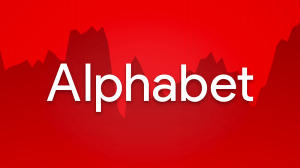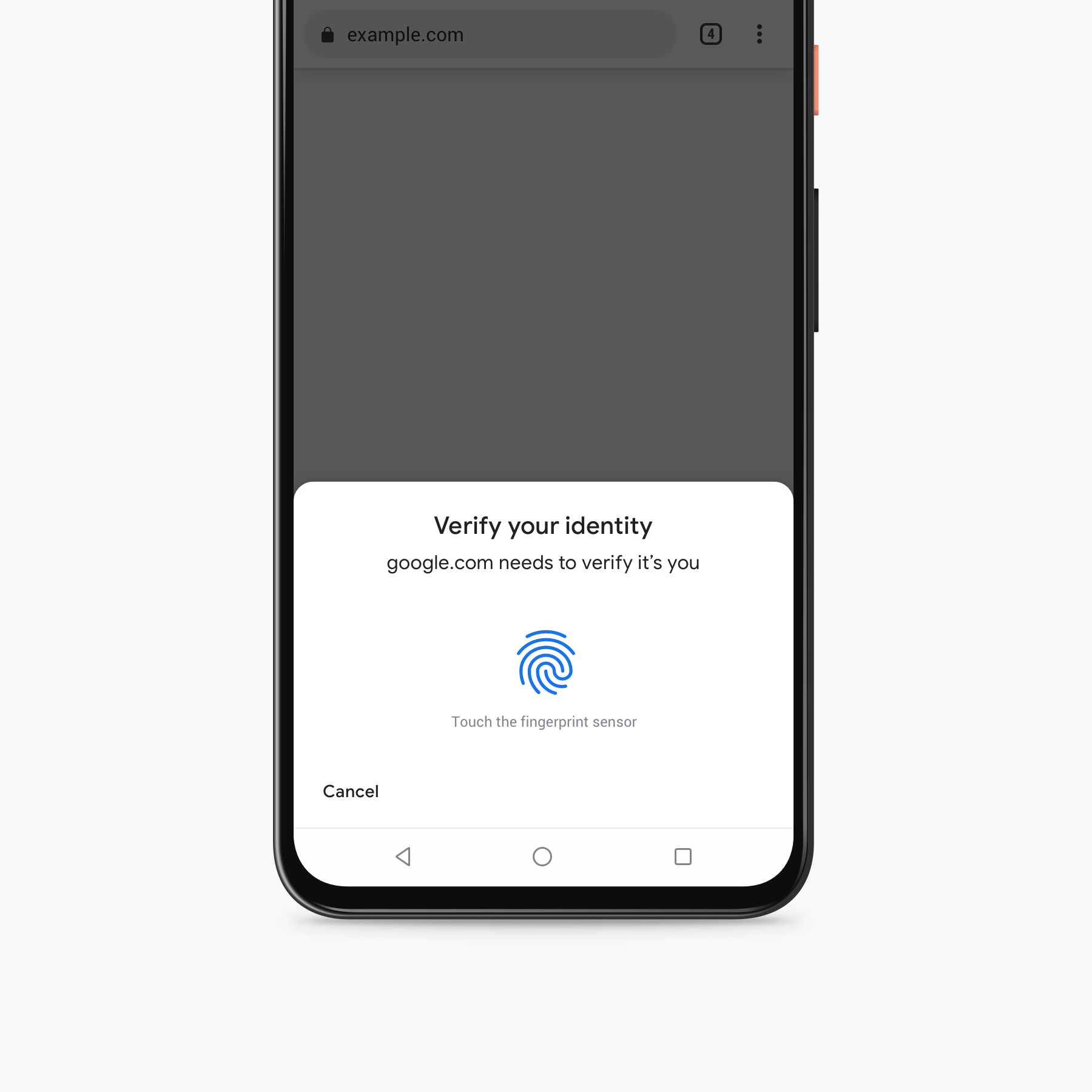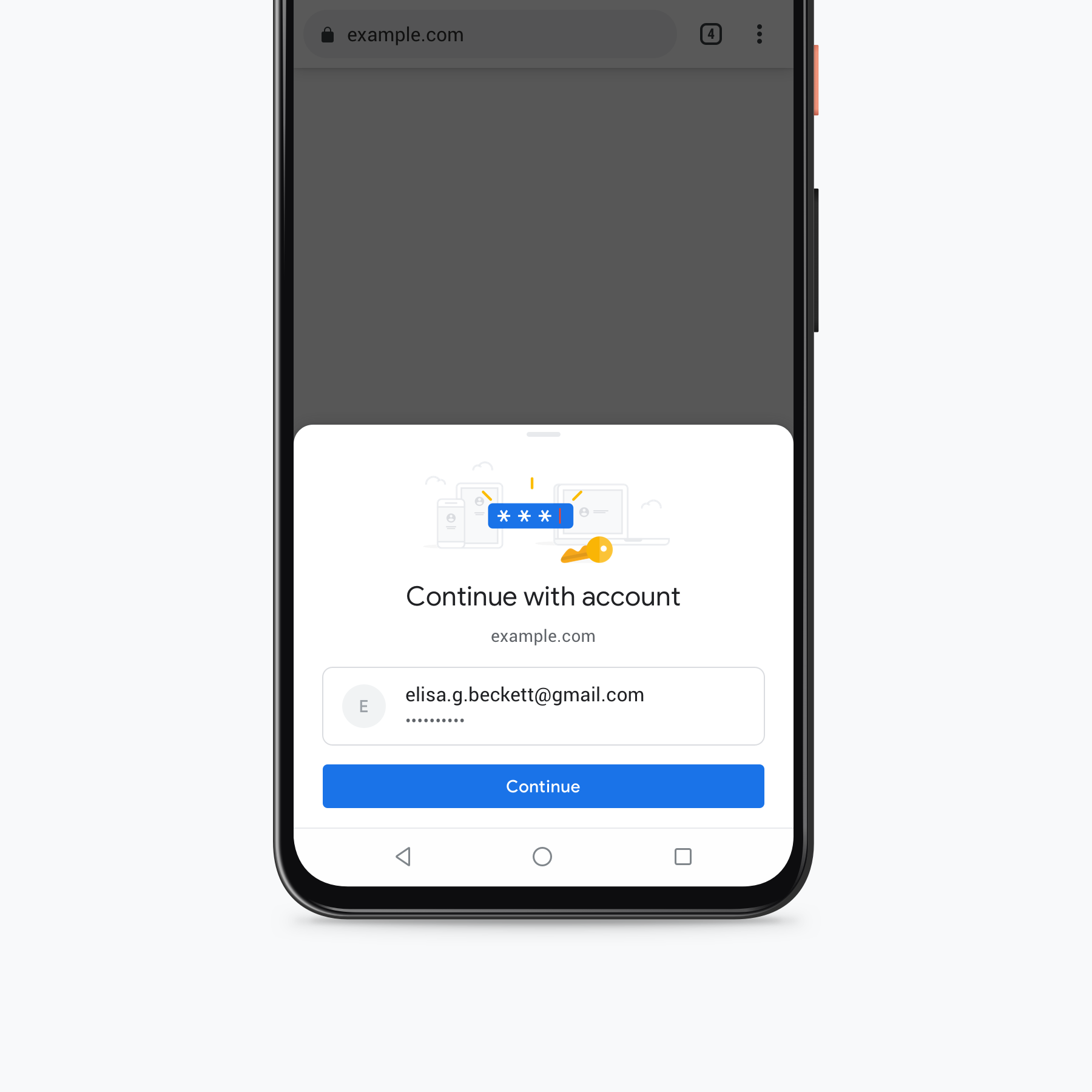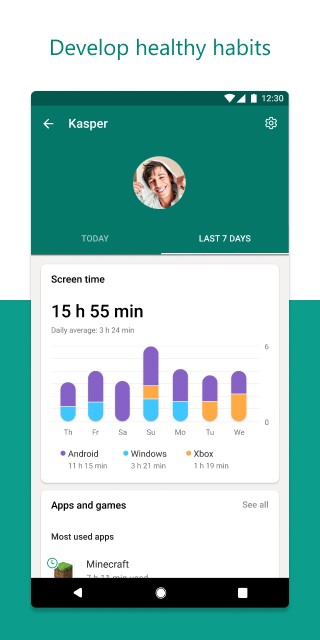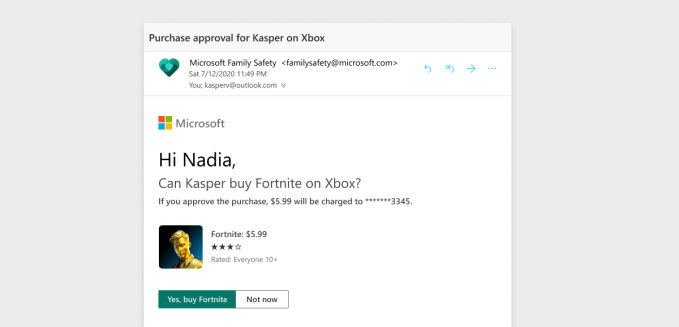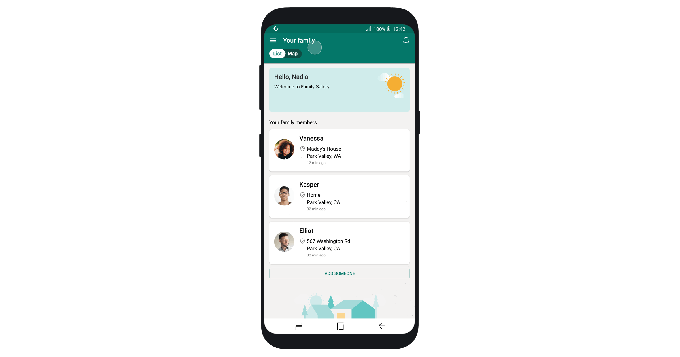Google alternative Ecosia is on a mission to turn search clicks into trees. The Berlin based not-for-profit reached a major milestone earlier this month, having used ad revenue generated by users of its privacy-sensitive search engine to plant more than 100 million trees across 25 countries worldwide — targeted at biodiversity hotspots.
However these good feels have been hit hard by the coronavirus pandemic. Ecosia has seen its monthly revenues slashed by half since COVID-19 arrived in Europe, with turnover falling from €2.6M in February to just €1.4M in June. It’s worried that its promise of planting a tree every 0.8 seconds is at risk.
It has also suffered a knock to regional visibility as a result of boycotting an auction process that Android OS maker Google has been running throughout this year, as a response to a 2018 Commission antitrust decision that found the tech giant had violated EU competition rules in how it operates the smartphone platform — including via conditions placed on phone makers to pre-load its own services (like Google search) as device defaults.
An auction process now determines which rival search engines appear on a search ‘choice screen’ Google began showing to Android users in Europe in the wake of the Commission decision. Currently, Google offers three paid slots via the auction to non-Google search engines. Android users setting up a new device always see Google’s own search engine as one of the four total options.
The tech giant’s rivals have consistently argued this ‘pay to play’ model is no remedy for its anti-competitive behavior with Android, the world’s dominant smartphone OS. Although most (including DuckDuckGo) felt forced to participate in its auction process from the get-go. Forgoing the most prominent route to the Android search market isn’t exactly a luxury most businesses could afford.
Ecosia, a not-for-profit, was the last major hold out. But now it says it’s been forced to end its boycott in a bid to remain competitive in the region. This means it will participate in the next auction round for the Android choice screen — scheduled for the beginning of Q4. If it wins any per country slots it will appear as a search choice option to those Android users in future, though likely not til next year given the length of the auction process.
It remains highly critical of Google’s pay-to-play model, arguing it’s no remedy for the antitrust violations identified by the Commission. It also laments that EU lawmakers are taking a ‘wait and see’ approach to determining whether Google’s ‘remedy’ is actually restoring competition, given all the evidence to the contrary.
“The main reason why we boycotted the auction is because we think it’s highly unfair and anticompetitive,” says Ecosia CEO Christian Kroll, speaking to TechCrunch via video chat. “Not only do we think that fair competition shouldn’t be sold off in an auction but also the way the auction is designed basically makes sure that only the least interesting options can win.
“Since we have a business model where we use most of our revenues to plant trees we basically can’t really win in an auction model. If you’re already a search engine that’s quite well known… then you have a lot of cannibalization effects through this screen. So we’re basically paying for traffic that we would get for free anyway… So it’s just super unfair and anticompetitive.”
Kroll expresses emphatic surprise that the Commission didn’t immediately reject Google’s auction model for the choice screen — saying it seems as if they’ve learned nothing from the EU’s earlier intervention against Microsoft’s tying of its Internet Explorer browser with its dominant desktop OS, Windows. (In that case the saga ended after Microsoft agreed to implement a ballot screen offering a choice of up to 12 browsers, which paved the road for Google to later gain share with its own Chrome browser.)
For a brief initial period last year Google did offer a fee-less choice screen in Europe, pushing this out to existing Android devices — with search rivals selected based on their market popularity per country (which, in some markets, included Ecosia).
However the tech giant said then that it would be “evolving” its implementation over time. And a few months later an auction model was announced as incoming for new Android devices — with that ‘pay-to-play’ approach kicking off at the start of this year.
Search rivals including DuckDuckGo and Qwant immediately cried foul. Yet the response from the Commission has been to kick the can — with regulators offering platitudes that said they would “closely monitor”. They also claimed to be “committed to a full and effective implementation of the decision”.
However the missing adjective in that statement is ‘fast’. Google rivals would argue that for a remedy to be effective it needs to happen really fast, like now — or, for some of them, the risk really is going out of business. After all, the Commission’s Android antitrust decision (which, yes, Google is appealing) already dates back two full years.
“I find it very surprising that the European Commission hasn’t rejected [Google’s auction model] from the start because some of the key principles from what made the choice screen successful in the Microsoft case have just been completely disregarded and been turned around by Google to turn the whole concept of a choice screen to their advantage,” says Kroll. “We’re not even calling it the ‘choice screen’ internally, we just call it the ‘auction screen’. And since we’re now stopping to boycott we call it the ‘no choice screen’.”
“It’s Google’s way to give the impression that there’s free choice but there is no free choice,” he adds. “If Google’s objective here would be to create choice for the user then they would present the most interesting options, which are the search engines with the highest marketshares — so definitely us, DuckDuckGo and maybe some other players as well. But that’s not what they’re trying to do.”
Kroll points out that another German search rival to Google, Cliqz, had to pull the plug on its anti-tracking alternative at the start of this year — meaning there’s now one less homegrown anti-tracking rival to Google in play. And while Ecosia feels it has no choice but to participate in Google’s auction game Kroll says it also can’t know whether or not participating will result in Ecosia overpaying Google for leads that then mean it generates less revenue and can’t plant as many trees… Or, well, any trees if the worst were to happen.
(NB: Kroll was speaking to TechCrunch ahead of signing an NDA that Google requires participants of the auction to sign which puts a legal limit on what they can say about the process once they’re involved — which, in turn, is a problematic element that another European search rival, Qwant, has also complained is unfair… )
“We don’t have any choice left, other than to participate,” adds Kroll. “Because we want to have access to the Android platform. So basically Google has successfully bullied everyone to play to its own rules — and it’s a game where Google is not only the referee but also they get a free ticket and they are also players…
“Somehow Google magically convinced the public but I think also the European Commission that they need to generate revenue in an auction because they have so many costs through the Android development and so on. It is of course true that they have costs… but they are also generating massive profit through the deals that they then make with the device makers and those profits are not at all shared.”
Kroll points out that Google shells out a (reported) $12BN per year to be the default search engine in Safari on Apple’s iOS platform — even as it pays nothing to get in front of the vast majority of mobile searchers’ eyeballs via Android (and does the same with Chrome).
“If they would pay the same amount of money for those platform they would soon be bankrupt,” he argues. “So they are getting all this for free and they are also getting other benefits for free — like having the Play Store preinstalled, like having Google Maps preinstalled, YouTube preinstalled and so on — which are all revenue sources. But they’re not sharing any of those revenue. They just try to outsource all of the costs that they have to their competitors, which is I think very unfair.”
While Alphabet, Google’s parent entity, doesn’t break out Google Play revenue specifically from within a generic “advertising” bucket when it reports its financials, data from SensorTower for the first half of 2020 suggests it generated $17.3BN in Play Store revenue alone over this six-month period, up 21% year-over-year. And Play is just one of the moneyspinners Google derives via ‘free’ Android.
Since the Commission’s antitrust 2018 decision against Android Kroll argues that nothing has changed for search competitors like Ecosia which are trying to offer consumers a more interesting value exchange for their clicks.
“What Google is doing very successfully is they’re just playing on time,” he suggests. “Our competitor, Cliqz, already went bankrupt because of that. So the strategy seems to work really well for Google. And we also can’t afford to lose access to those platforms… I really hope that the European Commission will actually do something about this because it has been done successfully in the Microsoft case and we just need exactly the same.”
Kroll also flags DuckDuckGo’s design suggestions for “a fair choice screen” — which we covered here last year but which Google (and the Commission) have so far simply ignored.
He suspects regulators are waiting to see how the market looks in another year or more. But of course by then it may be too late to save more alternative search engines from a Cliqz-style demise, thereby further strengthening Google’s position. Which would obviously be the opposite of an antitrust remedy.
Commissioner Margrethe Vestager already conceded last year that another of her interventions against the tech giant — the Google AdSense antitrust case — is an example of “enforcement that hasn’t succeeded because it has failed to restore competition”. So if she’s not careful her record on failed remedies could dent her high profile reputation for being an antitrust chief who’s at least willing to take on tech giants. Where competition is concerned, it must be all about outcomes — or what are you even doing as claimed law ‘enforcers’?
“I always fear that the point might come when big corporates are more powerful than our public institutions and I’m wondering if this point isn’t already reached,” adds Kroll, positing that it’s not clear whether the EU — as an economic and political project now facing plenty of its own issues — will have enough resilience to be able to enforce its own competition law in the near future. So really his key point is: If not now, when? (Or, well, how?)
It’s certainly true that there’s a growing disconnect between what the Commission is saying around competition policy and digital markets — where it’s alive to the critique that regulatory interventions need to be able to move much faster if they’re to prevent monopoly power irreversibly tipping these markets (it’s currently consulting on whether to give itself greater powers of intervention) — and its hands-off approach to how to remedy market failure. tl;dr there’s no effective enforcement without effective remedies. So dropping the ball after the fact of a decision really defeats the whole operation.
Vestager clearly recognizes there’s a problem in the digital context — telling the EU parliament last year: “We have to consider remedies that are much more far reaching”. (Albeit, still not committing to having much more far reaching remedies.) Yet in parallel she preaches ‘wait and see’ as her overarching philosophy — a policy ‘push-pull’ which seems to be preventing the unit from even entertaining taking on a more agile, active and iterative role in supporting markets towards actual restoration of competition. At least not before a lengthy consultation exercise which further kicks the can,
If EU lawmakers can’t learn the lessons from their own relatively recent digital antitrust history (Microsoft tying IE to Windows) to effectively enforce what is a pretty straightforwardly similar antitrust case (Google tying search & its other services to Android), you have to question why they think they need new antitrust tools to properly tackle digital monopolies now. Given they don’t seem able to effectively wield the tools they’ve already got.
It does rather look increasingly like the current crop of EU regulators have lost conviction — and/or fallen prey to risk aversion — in the face of platform power moves. (To wit: There are whispers the Commission is preparing to wave through Google’s acquisition of Fitbit, on paper-thin promises from Google, despite major concerns raised about privacy and increased data consolidation — which, if true, would again mean the Commission ignoring its own recent history of naively swallowing other similar tech giant claims.)
“My feeling is, what has happened in the Microsoft case… there was just somebody in the Commission crazy enough to say this is what the decision is and you have to do it… And maybe it just takes those kind of guts. That’s then maybe a political question. Is Vestager willing to really pick those battles?” asks Kroll.
“My feeling is if people really understand the situation then they would care but you actually need to do a little bit of explaining that it’s not good to have a dominant player that is in such an important sector like search, and that is basically shutting down the market for everybody else.”
Asked what his message is for the US lawmakers now actively eyeing antitrust concerns around Google — and indeed much of big tech — Kroll says: “I’m a fan of competition and I also admire Google; I think Google is a very clever company but I think there is a point reached where there’s so much concentration of power that it gets dangerous for society… We’ve been suffering quite a lot from all the dominance that Google has in the various sectors. There are just things that Google are doing that are obviously anticompetitive.”
One specific thing he suggests regulators take a close look at is how much money Google pays Apple to be the default search option on Safari. “It’s paying more money than it can actually afford to win the Safari search volume — that I think is very anticompetitive,” he argues. “They already own two-thirds of the market and they basically buy whatever’s left over so that they can just cement their dominance.
“The regulators should have a very close look at that and disallow Google to participate in any of those bids for default positions in other browsers in the future. I think that would even be beneficial for browsers because in the long term there would finally be competition for those spots again. Currently Google’s just winning them because they’re running out of options and there are not many other search providers left to choose from.”
He also argues they need to make Google repair “some of the damage they’ve done” — i.e. as a result of unfairly gaining marketshare — by enforcing what he calls “a really fair choice screen”; non-paid and based on relevance for users. And by doing so on Android and Chrome devices.
“I think until a year ago if you visited Google.com with your Safari browser or Firefox browser then Google would recommend to install Chrome. And for me that’s a clear abuse of one dominant position to support another part of your company,” he argues. “Google needs to repair that and that needs to happen very quickly — because otherwise other companies might [go out of business].”
“We’re still doing okay but we have been hit heavily by corona and we have a huge loss in revenue. Other companies might be hit even worse, I don’t know. And we don’t have the same deep pockets that the big players have. So other companies might disappear if nothing’s done soon,” he adds.
We reached out to Google and the European Commission for comment.
A Google spokesperson pointed us to its FAQ about the auction. In further remarks which they specified could not be directly quoted they claimed an auction is a fair and objective method of determining how to fill available slots, adding that the revenue generated via the auction helps Google continue to invest in developing and maintaining Android.
While a spokeswoman for the Commission told us it has been “discussing” the choice screen mechanism with Google, following what she described as “relevant feedback from the market, in particular in relation to the presentation and mechanics of the choice screen and to the selection mechanism of rival search providers”.
The spokeswoman also reiterated earlier comments, that the Commission is continuing to monitor Google’s choice screen implementation and is “committed to a full and effective implementation of the decision”.
However a source familiar with the matter said EU lawmakers view paid premium placement for a few cents as far superior to what Google was offering rivals before — i.e. no visibility at all — and thus take the view that that something is better than nothing.

from Android – TechCrunch https://ift.tt/3gfTvVJ
via
IFTTT

